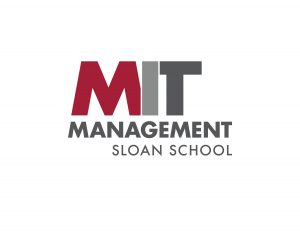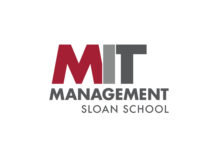 I am please to be able to post the first student review of the MIT MSF program. This is arguably the best MSF program in the US right now and I have been trying to land a student review for some time. Placements have always been top notch and I was sure any review I received would also reflect this. This one does so in spades.
I am please to be able to post the first student review of the MIT MSF program. This is arguably the best MSF program in the US right now and I have been trying to land a student review for some time. Placements have always been top notch and I was sure any review I received would also reflect this. This one does so in spades.
Recruiting
Recruiting opportunities are very good, as you would expect from MIT. Strong candidates will likely have several interviews a week during the couple of months that recruiting is the heaviest. In addition to the benefit of being considered by every company, the frequency of interviews will help those who feel particularly weak in this area, just in terms of getting enough reps in order to be at the top of their interview game by the peak of recruiting season. Personally, it took about five or so first rounds until I thought I could basically answer any question that was thrown at me.
In terms of placement, MFins have the opportunity to interview for either undergrad- or graduate-level jobs, typically based on whether or not the students have 2+ years’ experience. Those without experience have successfully negotiated 2nd year Analyst positions, and those with experience would be able to negotiate for Associate-level positions. The reputation of MIT and the math-components of the coursework are enough for students to get interviews at quant-trading firms for trading roles, or interviews at fundamental trading shops/Wall Street firms in quant roles. A PhD would typically be required for quant roles at quant funds. There is a major lack of quant ability on Wall Street right now, so fulfilling this category increases job prospects materially. For those not interested in pursuing quant careers, MFin graduates have successfully joined Wall Street as bankers, traders, or junior PMs, in addition to the number of students joining or developing startups or pursuing higher education.
The companies that come to recruit on campus (or firms who will interview students who apply directly) would include virtually every company in the world. Trading firms (SIQ, Optiver, Jane Street, etc) recruit heavily from MIT and generally group MFins with undergrads. Consulting firms, for some reason, really like MFins and multiple people each year typically get Analyst-level jobs at McKinsey or BCG. Big Tech firms will likely consider MFins if they use their optional coursework to take more computation-heavy courses. Wall Street generally likes MIT and the MFin program, although the recruiting cycle typically starts a 1.5yrs before graduation, so there are fewer dedicated positions for full-time recruiting, especially for those without experience. MIT’s choice to offer an optional one-semester extension relieves some of that pressure, since students can recruit for internships if they opt to extend their stay.
Coursework
The min requirements in terms of coursework are about what one might expect from the fifth year of an undergrad Finance degree from MIT. The summer is a crash-course in Finance/Math/Accounting, since few people are typically up-to-speed on all three topics. The core classes are moderately rigorous, but the material is typically not excessively difficult. There is a surprisingly high overlap between coursework and what is directly applicable to jobs in the finance industry, which likely reflects that the MFin structures its courses based on input from recruiters and managers on Wall Street.
The program offers several options to generate real-world-like experience via the Proseminar in Capital Markets/Investment Banking, or via the Finance Research Practicum, where well-regarded firms offer projects to students to complete over the course of the semester (for the Proseminar) or over the Winter term (for the Practicum). The projects are typically quite advanced and are very good interview fodder as it offers a significant differentiating factor during interview.
The portion of optional coursework in the MFin is greater than most 1-year Masters Degrees, but not atypical for a 4th year of a Finance degree. Students can generally take (1) more economics-focused finance courses, (2) more math-focused finance courses, (3) pure math or (4) computer science. In addition, cross-registration allows students to take courses at Harvard Business School. The winter term can be used to take the Finance Research Practicum, or take various courses in MIT’s Independent Activity Period, where various practitioners who are involved with MIT will teach courses on topics such as Wine-Making, Videogame Design, or Japanese Archery, etc. These are good not only for uniqueness of profile during recruiting but also for well-roundedness in general.
Campus Activities
The activities on campus range from practically ludicrous to legitimately world-changing. The MIT ecosystem of faculty and staff is a constant machine of innovation and productivity that, when not doing classwork, manifests itself in profound ways. The Sports Analytics Club runs a yearly conference that is attended by major players in the industry. The model train club is continuing their 40-year long journey of painstakingly replicating the Boston transit system from the 1970s. And the Happy Belly club is pursuing a greater understanding of the human condition by visiting at all the best restaurants in Boston. The combination of the number of graduate students, the general knack of MIT students for creative construction, and the cautious support from the Institute as a whole leads to a wide variety of available activities such as obtaining your Pirate’s license (via completing courses in sailing, archery, fencing, and pistol-shooting), or learning how to juggle bowling pins. For those more serious, Sloan has very active professional societies focused on Consulting, Quantitative Finance, and Investment Banking, to name a few. For anything you might be interested in doing at MIT, there will likely be a group of students who will be interested in doing it with you.
I hope any of you considering the MIT Masters in Finance program find this helpful in your decision. I found it very impressive to read and really solidified my confidence in this program. Anyone with the stats to apply absolute should in my opinion.
I’ll keep working on getting other reviews for all of you to read. I think it is helpful to hear in a students own words their experience. Keep checking back for more.
Here is a link to the MIT Masters in Finance Program


